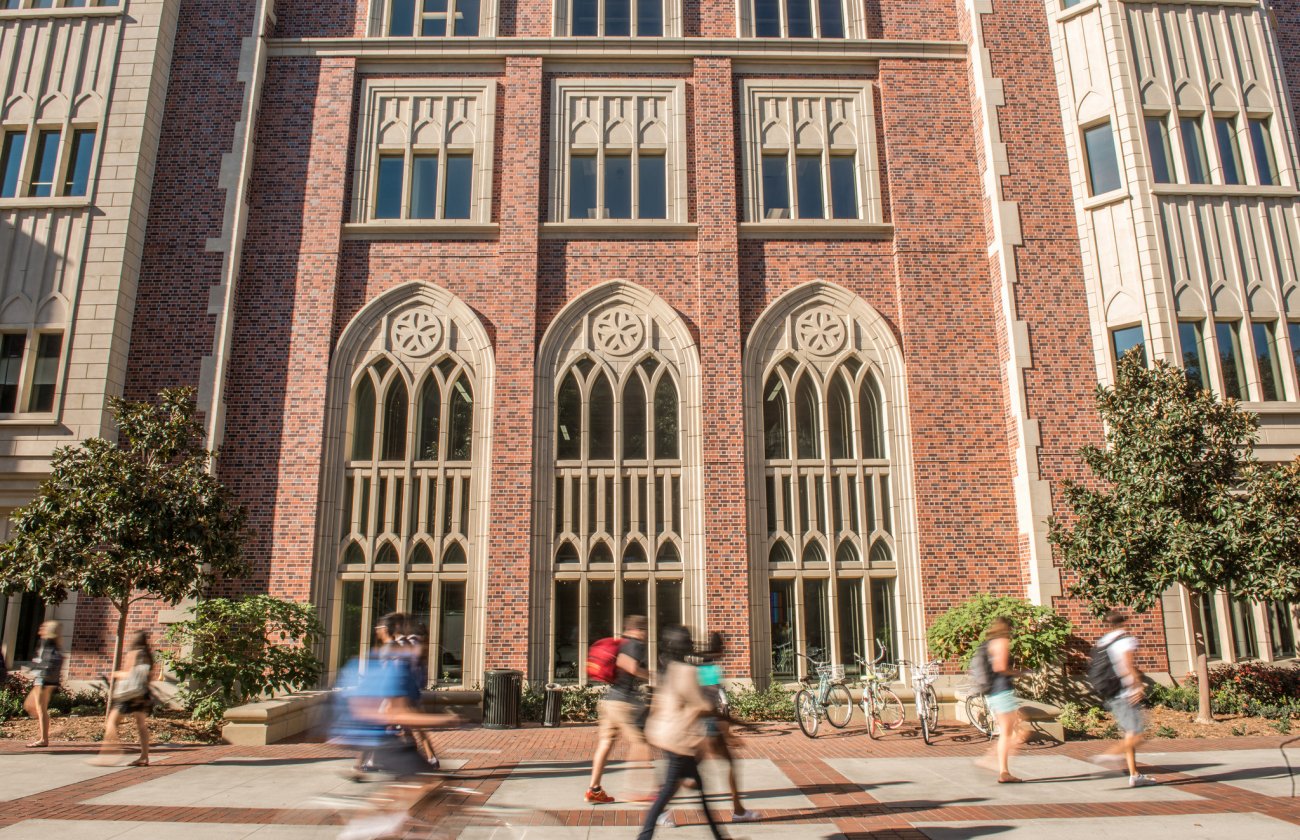For the 25th year, USC Annenberg presented the Kenneth Owler Smith Symposium, an event that emaines the field of public relations. Jointly presented with the Public Relations Society of America Los Angeles (PRSA-LA), the event celebrates its namesake.
The event this year further recognized Smith's contributions to USC Annenberg and public relations, as it was announced that through the generoisty of several of Smith's former students, Classroom 209 in the new Wallis Annenberg Hall will now be named the Kenneth Owler Smith classroom.
Professor Jerry Swerling moderated the event, introducing this year's topic of "Diversity in an Age of Convergence: Conversity?" by reviewing the membership of PRSA. He noted that of the society's 22,000 members, only 14 percent identified as non-white (in 2010), yet 30 percent of U.S. population identifies as non-white. Swerling said discussion would address this disparity between the PR profession and the population, as well as the shifting views of diversity in younger generations.
"[For millennials], multiculturalism has evolved to the point where it’s a fusion of cross-culturalism," Swerling said. "If you walk across this campus, you’re going to see amazing groups of people. They go far beyond racial identifiers like african american, latino, and asian. So they go about thinking about people in a very different kind of way."

From defining diversity to identifying gaps in PR and potential solutions, the discussion was wide-ranging. Imada noted that it is important to discuss the issue, but it is also important to act.
"I think that a good micro trend is that we’re becoming more diverse as a nation and we’re talking about it and aware of it. And talking is the first step toward actions," he said. "But we've been talking about it for 40 years and we’re still not where we want to be."
The panelists discussed the need for organizations to be more reflective of the marketplace, as that's the only way to understand and thus impact the market.
Students in the audience raised concern over whether identifying and targeting differences counters the millenial mentality of inclusivity and "cross-culturalism."
One student shared:
"I grew up in a home where it wasn’t "celebrate" other cultures, it was 'You shouldn’t even think about anyone differently regardless of culture, because everyone is a person.' My normal is to be inclusive of everyone. And that’s the kind of home I grew up in. ... I feel like the more we talk about it and the more we say: 'Oh, there are so many different cultures and we have to different programming for different people, cultures, and gender and all that kind of stuff.' It’s like, we’re all just people. So we should just all be treated like people."
Panelists and audience members then discussesed how diversity is personal, and while some want to be a part of the traditional "melting pot" others look for those niches with which they indentify.
When asked how to shift the PR field to not only be more representative of the public in their hiring, but also in their work, panelists look to the students in the audience.
"I think that the millennials are going to make different decisions," Goode said. "They are going to decide to not want to work for employers who aren’t more accepting and embracing of people with various differences and that will then create room for talent. That will cause corporations and other organizations to continue to change."
Not only in millenials choosing where to work, but also in companies choosing who to hire, Perez said of the power to make a difference. She called for organizations to invest in their employees, in mentorship programs and training.
Perez declared she would "marry diversity to performance review."
"I frankly think that anything that is important for a core value for the company should be tied to the identity of the organization," she said. "You shouldn’t, as an organization, get promoted if you don’t commit to diversity."
The symposium was an open discussion about what can be a sensativie issue.
Imada said that conversations like these should continue, and should be viewed openly. Rather than focusing on political correctness, focus on teachable moments, he said.
"Every intersection you walk in gives you choices and every time you walk into that intersection is a teachable moment," Imada said. "You make choices, you share experiences, and you don’t worry about what people think."








